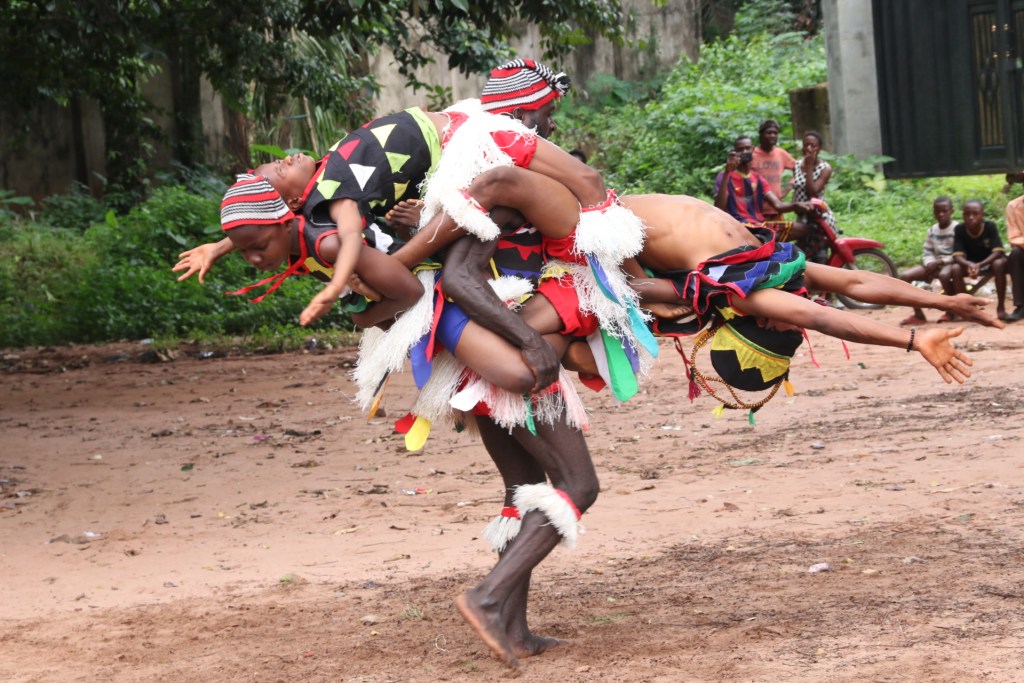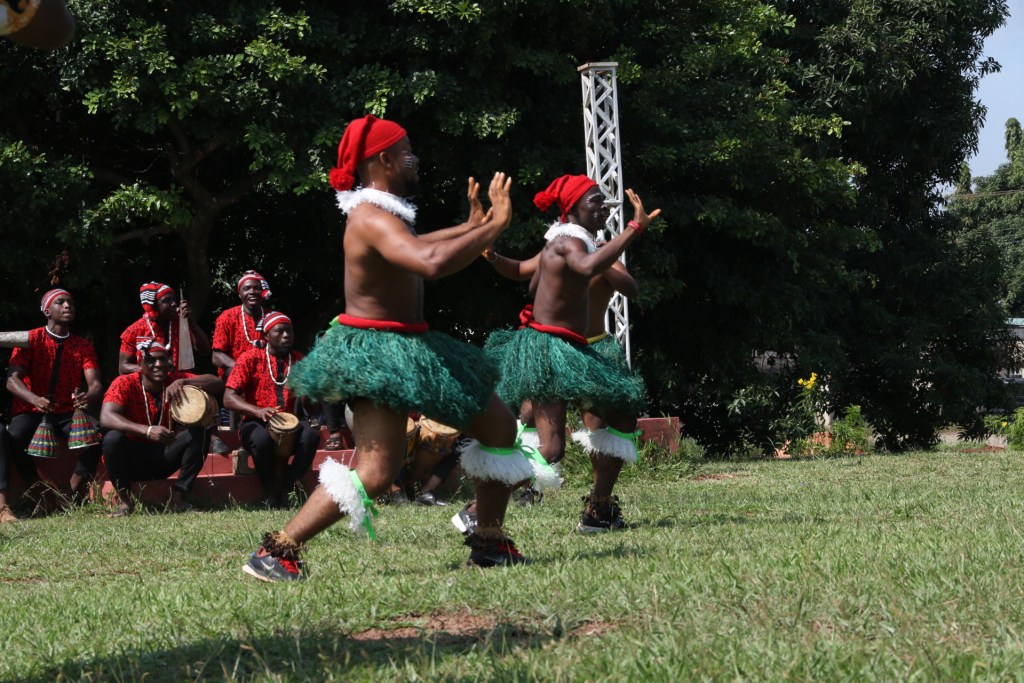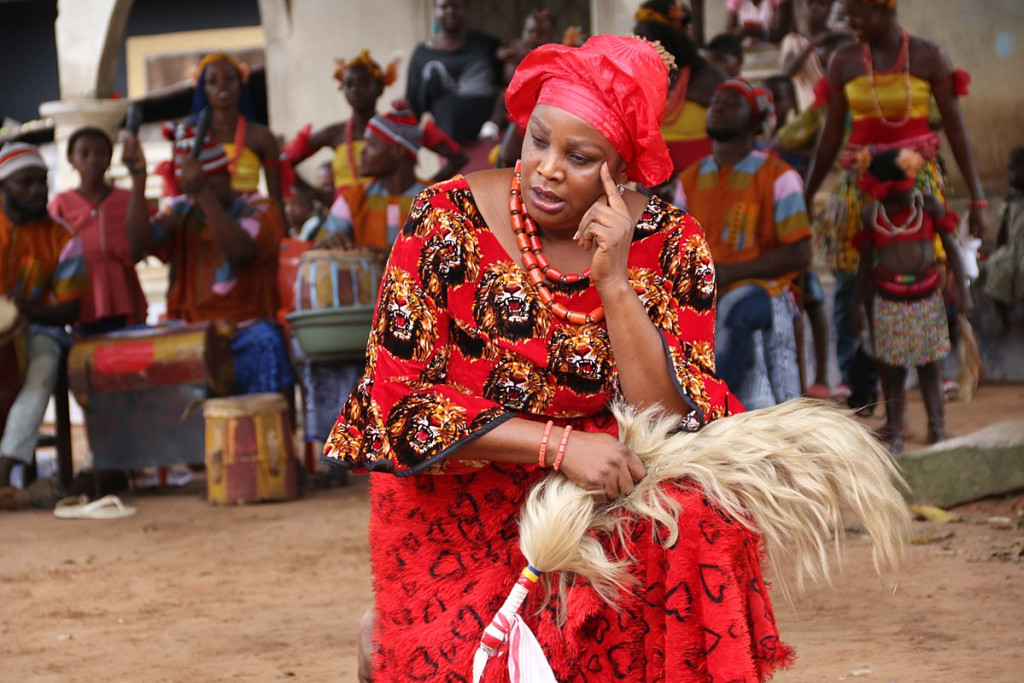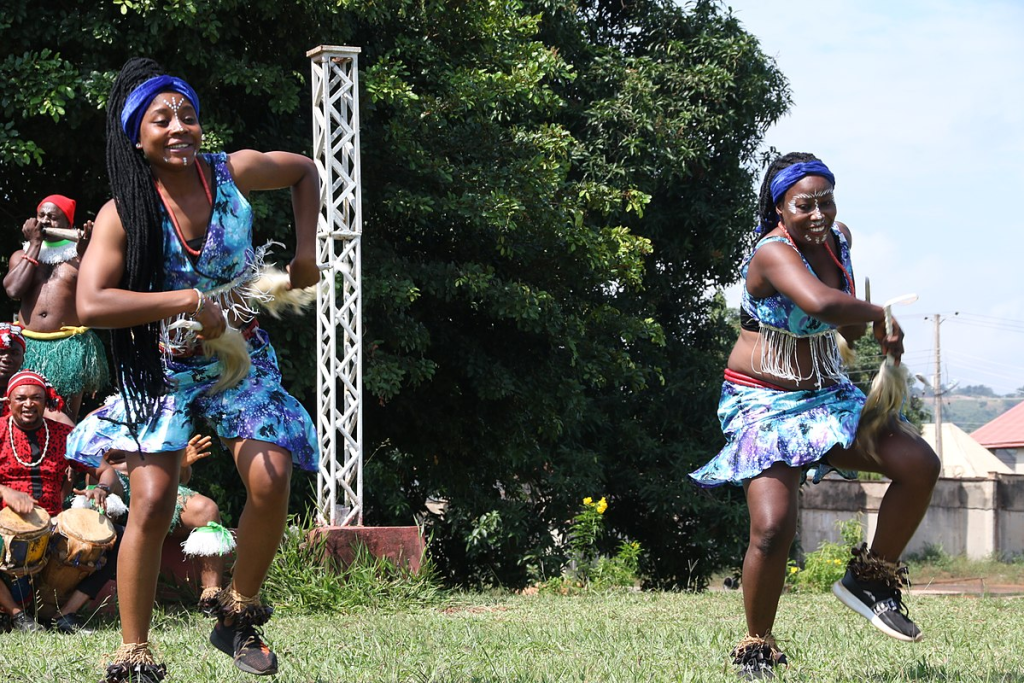The popularity of dance as a form of art in Africa is impressive. Each dance holds a context that gives it meaning within its performance. Igbo people love music and celebrate several dances for different stages of development in life. For example, the annual Ozuruimo Festival displays different traditional dances from Imo state and other southeastern states of Nigeria. This festival preserves the igbo dance culture especially in the minds of people and for the future generation. But the festival is vanishing with societal changes with limited access to its remnants only documented in paper forms. The remaining memory stands the risk of fire outbreak, humidity and rodents. This is not the only danger that looms for the Igbo cultural heritage.

Igbo dance is experiencing a generational fragmentation. The knowledge of the holistic form of diverse dances rests with the senior citizens, many of whom might leave this earth without passing it onto the current generation. Without more cultural preservation initiatives, dance is losing young people who are leaving their communities and prioritizing work and other activities.
And that is why we founded the Audiovisuals of Igbo Dances (AID) project. In our process of doing the project, we discover not only valuable lessons about community-engaged documentation projects, but also an opportunity for the organizing team to learn more about the communities preserving those traditions.
How did we approach the process?
The core team of three, Euphemia Uwandu, Chibuike Adolphus and Emmanuel Obiajulu worked alongside Tunde Oladimeji (a notable documentary film maker in Nigeria), Mikaeel Sodiq and Christian Nwaru (Ph.D). AID is an attempt to document this underrepresented knowledge on wikimedia projects and the digital space under open license. We co-developed our process with a global, diverse set of advisors. To this AID adopted a four-stage approach of:
- Field work– Working with traditional chiefs, indigenous people, Native dancers, Native drummers, knowledge experts, cultural custodians, dance troupes, and senior citizens to produce audiovisuals, audio pronunciations and images in southeastern states in Nigeria
- Post-production and digitizing content – Archiving finalized production on Wikimedia Commons, Internet Archive, and Wikisource among others
- Community engagement – Community members from Igbo Wikimedia and Wikimedia Nigeria Imo State Network create igbo wikipedia articles, wikidata items, and use produced content on relevant articles and wikidata.
- Knowledge sharing – Work with relevant institutions to create visibility and use for the project. By sharing knowledge from this project freely with the world, in collaboration with Africa Tech Radio (ATR) we ensure that communities and partners learn about their cultural heritage.
We need more community efforts to increase the impact.
The AID project completed its first stage of the process: We have produced and documented 16 Audiovisuals of Igbo dances, connecting them to Wikisource; 16 audio pronunciations of the names of the dances; and 25 images on Wikimedia Commons and Internet Archive.. We also created 16 articles for the dances on Igbo Wikipedia and 24 wikidata items for the dances and their instruments.

Each community has their own needs and documentation traditions
For us working on the project was as much about learning about the communities that we were documenting, as learning about their dance. Elderly traditional chiefs, retired native dancers and cultural custodians recognize the historical origins and analytical views of the dances. They tell these stories orally only when presented with the opportunity. Social media platforms such as Facebook, Instagram, Twitter and YouTube present an additional means for documenting this knowledge in some communities. But this is not the only interesting experience.
We see that current dancers focus more on performance than context and story. In engaging in this tradition, performance is as important as context or story which brings meaning to dance. We need to see every dance as a story that helps us listen to the historical, social and cultural context of a group of people.
As someone from a feminist background, it was really surprising to see few women engaging in dance culture. This is why we were inspired by the exceptional women and dance troupes leading the space in their communities like the Adanta troupe and Chinedu Omeri-otu. Chinedu Omeri-otu, Team Lead of the Nkwa-umuagbogho dance is a great dancer and lover of dance culture. Having left the city life for her community, she organizes with her people to keep their dance legacy alive.


Documenting a tradition is as much about showing it changing as preserving its history
We know that some of the dances are evolving with new forms and groups. For example, nkwa-umuagbogho and iri-agha dances now display without the beginning stages. The three stages of iri-agha war dance are the preparatory ritual performances that precede the war, the performance that re-enacts the war experience and the war victory celebration.
Similarly, the stages of the Nkwa-umuagbogho dance includes the wrestling contest, chakpuruegedem, Ọgalụzọ, Pim-pim, Nkwa-ụmụagbọghọ n’ime Nkwa-ụmụagbọghọ, Leader’s solo, Girls’ solo and Ebini. AID Project captured these different stages of the Nkwa-umuagbogho and iri-agha dances often excluded from modern day performances.
This is the same for Okanga, Atu and Adamma masquerade dances when performed outside of the celebratory calendar. This project serves as an important way of capturing detached and new forms of dances.
AID is only the first step in preserving living culture for the future
For us, the AID project is both very locally impactful, but also a necessary model for how the international movement needs to approach knowledge equity.
At the local level, AID brought our heritage in different variants of Igbo language from giving space for indigenous people to tell their own stories over the course of the project. We were able to reach about 1000 indigenous people across 5 states in south east Nigeria ranging from children, men, women, youth and senior citizens during the planning and fieldwork stages of the project. These were community members, traditional chiefs, cultural custodians, knowledge experts, dance troupes, and witnesses to the performances. And now their voices will be preserved for future generations on Wikimedia projects.
But more importantly, and this is why we are sharing this with the International Wikimedia community, if we are serious about the Sum of All Human Knowledge in our own languages: we also have to get better as a movement at documenting these living traditions as they are changing, in their own context. Especially in Africa, where we face many challenges in identifying reliable sources to document our cultures, a first step might be creating video, oral history and photography that capture our own unique experiences.
That’s the amazing thing about the Wikimedia movement: You too can be part of documenting living traditions!
We also want to give special thanks to our advisory team – Olushola Olaniyan, Tochi Precious, Isaac Olatunde, Satdeep Gill (WMF), Uzoma Ozurumba (WMF), Francesc Fort, Daniel Bogre Udell, Joy Agyepong, Ceslause Ogbonnaya, Oby Ezeilo and Ibe Michael Ogbuu

Can you help us translate this article?
In order for this article to reach as many people as possible we would like your help. Can you translate this article to get the message out?
Start translation